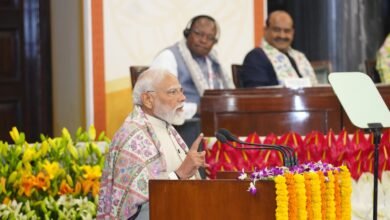India’s Health Ministry Rejects Study Claims of Life Expectancy Decline During Covid-19

News Mania Desk/Agnibeena Ghosh/20th July 2024
The Union Ministry of Health and Family Welfare has strongly refuted a recent study published in the academic journal Science Advances that reported a significant drop in life expectancy in India during the Covid-19 pandemic. The ministry has dismissed the study’s findings as “untenable and unacceptable,” challenging both its methodology and conclusions.
The study, which was published in Science Advances, estimated that India experienced a decrease of 2.6 years in life expectancy from 2019 to 2020. It highlighted that socially disadvantaged groups, including Muslims and Scheduled Tribes, faced the most severe impacts. The study further reported that females experienced a greater decline in life expectancy (3.1 years) compared to males (2.1 years).
The Ministry of Health has criticized the study for several methodological flaws. According to the ministry, the study’s authors used data from a non-representative subset of households from the National Family Health Survey (NFHS-5), which was conducted between January and April 2021. The ministry argues that NFHS-5 data is only representative when considered as a whole, and the study’s analysis of merely 23% of households from 14 states cannot accurately reflect national mortality trends.
Additionally, the ministry has raised concerns about potential selection and reporting biases. It noted that the data was collected during the peak of the Covid-19 pandemic, which could have influenced the findings. The ministry emphasized that India’s Civil Registration System (CRS) is highly robust, capturing over 99% of deaths. It stated that death registration has improved significantly over the years, increasing from 75% in 2015 to over 99% in 2020.
The government also pointed out that there was an increase of approximately 474,000 death registrations in 2020 compared to 2019. This increase, according to the ministry, aligns with historical trends and is not solely attributable to the pandemic. The ministry further explained that the rise in death registrations is also due to the increasing trend in CRS registration and a larger population base in the subsequent year.
In addition, the Sample Registration System (SRS), which surveys a large and diverse population across the country, reported minimal excess mortality in 2020 compared to 2019. This finding contradicts the study’s claims of substantial mortality increases.
The ministry also disputed the study’s conclusions regarding age and sex-related mortality. Official data indicates that Covid-19 mortality rates were higher among males and older age groups, contradicting the study’s assertion that younger individuals and females experienced greater excess mortality. The government described these discrepancies as “inconsistent and unexplainable,” further undermining confidence in the study’s claims.
Overall, the Ministry of Health and Family Welfare has rejected the study’s findings, asserting that the data and methodology used are flawed and do not accurately reflect the impact of the Covid-19 pandemic on life expectancy in India.






